Honduras grants Miskitu People title to huge swath of coastal, border lands they occupy, but massive dams under construction on the Patuca River and pilfering and deforestation of the UNESCO Río Plátano Biosphere Reserve continue unabated in a region undergoing massive militarization. And then there is the consideration of oil and gas leases.
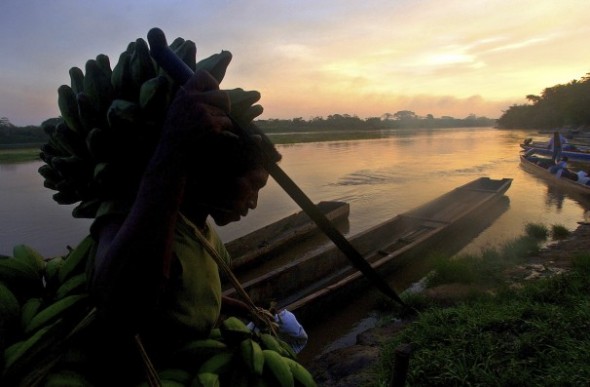

Indigenous people of Honduras granted one million hectares of rainforest
By Jeremy Hance, Published in Mongabay.com
One-hundred and fifty years after a treaty with England granted the Miskitu people rights over their land–a treaty which was never fully respected–the government of Honduras has officially handed over nearly a million hectares (970,000 hectares) of tropical forest along the Caribbean Coast to the indigenous people. The Miskitu are found along the eastern coast of both Honduras and Nicaragua and number around 200,000.
The land lies in Honduras’ northeastern corner, an area known as the Cape of Gracias A Dios, in particular along the border with Nicaragua on the Caribbean Coast. The titles are to be handed over to the country’s five Miskitu communities, known as Finznos, Wamakklisnasta, Trucksinasta, Watiasta and Laminasta. Together, they represent about 21,800 people living in more than 100 villages and towns in the sparsely populated region. — Washington Post
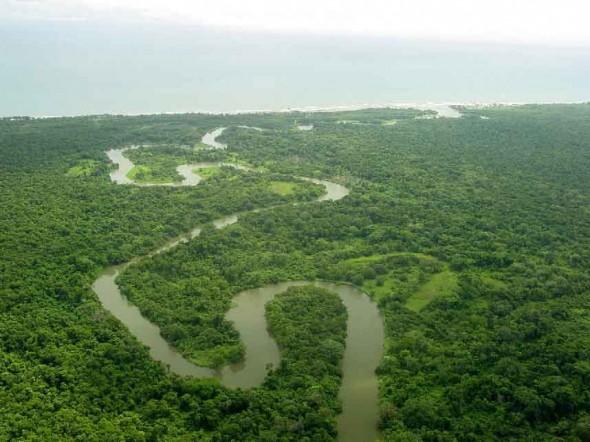

“This is an unprecedented and historic moment for our peoples,” said Norvin Goff, chairman of Miskitu Asla Takanka (MASTA), a Honduras group representing the tribes. “The entire region is at risk from illegal hunting, logging and clearing of land to graze cattle. The Miskitu people can protect it, but only if we have title to those lands.”
Over the last few decades, tropical forests along the Caribbean Coast have been infiltrated by land speculators, loggers, and ranchers, creating conflict between the illegal settlers and the Miskitu. The Miskitu now have title to seven land areas, comprising 128 communities, and about seven percent of Honduras’ total land area.
President Lobo became president in the wake of a 2009 coup and managed to boost local debt to 52 billion lempiras, which equates to $2.6 billion and marks a 31 billion increase since he took office. Now, Honduras is set to sign an accord with the Industrial & Commercial Bank of China for a loan of $295 million to fund the second stage of the Patuca 3 hydroelectric project in the heart of Miskitu and Tawahka territory. — LatinoPost
The official rights to their land will allow the Miskitu to negotiate possible REDD+ treaties in the future. REDD, which stands for Reducing Emissions From Deforestation and Degradation, is a UN program that aims to cut global carbon emissions by paying tropical countries to keep their forests standing. “We have been doing REDD for 500 years,” notes Goff. “Now we will be able to teach others how we have protected our forests and natural resources, and benefit from our role in helping the world that wants so badly to stop destroying the forests so we can slow climate change.”
The Consejo Coordinador de Organizaciones Populares e Indígenas de Honduras (COPINH) suggests, through its spokesperson, Bertha Caceres, that the Lobo Sosa government has an ulterior motive in granting these land titles at this particular time. She said: “What a coincidence. They authorize land titles just as they are to begin asking the Misquito people to approve oil and gas exploration by the English company British Gas Group.” To get their environmental license, they must get the consent of the Miskito peoples, through a series of public meetings that are just about to take place. — Honduras Culture and Politics
Around 40 percent of Honduras is covered in forest, but the country has one of the highest rates of deforestation in Latin America. From 1990 to 2005, Honduras lost 37.1 percent of its forestland. The country is still home to a number of important Neotropical species such as the jaguar (Panthera onca), Baird’s tapir (Tapirus bairdii), giant anteater (Myrmecophaga tridactyla), and mantled howler monkey (Alouatta palliata).
“With a substantial proportion of the total territory of Honduras now owned by Indigenous peoples, we envision the creation of a new development agenda in Honduras, one built with guidance from indigenous peoples and with respect for our customary rights,” Goff said.



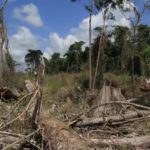
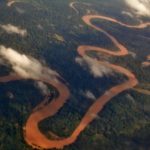
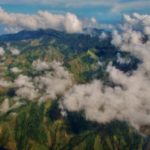
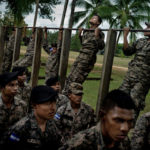
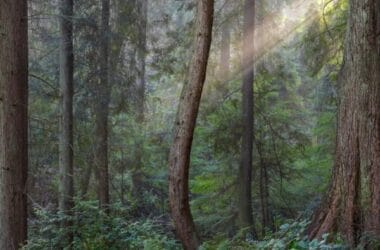

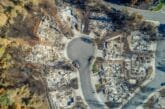



Pingback: Blessing for La Moskitia, A Culture and Land in Transition | WilderUtopia.com